An Insider’s Guide to Exploring West Papua, Indonesia
Find out what to expect and how to stay safe when you travel to West Papua, from cultural encounters in the Baliem Valley to the divine diving scenes of Raja Ampat.
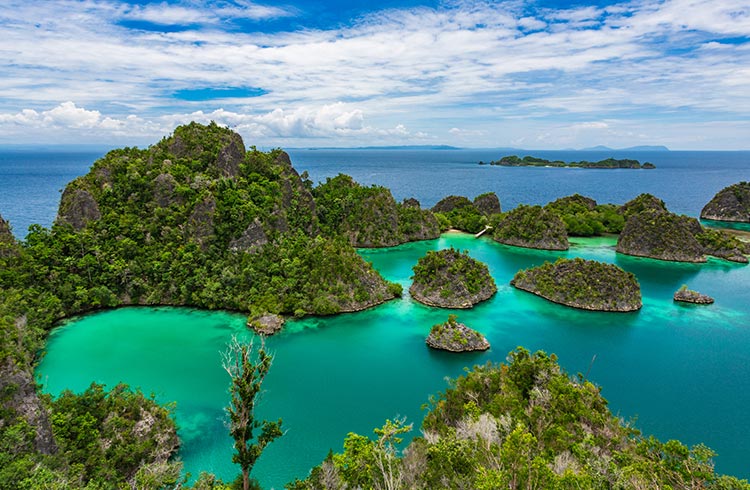 Photo © iStock.com/MariusLtu
Photo © iStock.com/MariusLtu
As soon as I stepped off the plane I received disbelieving looks. I was the only backpacker in the entire Papuan airport. Friendly locals rushed over to shake my hand and practice their broken English on me. “Why you come here!?” and “Good luck!” were the phrases I heard the most. They don't call West Papua Indonesia's "wild west" for nothing.
Visiting Wamena and finding a guide
From Wamena, the main town in the Baliem Valley, there are several tribal villages to explore in the surrounding countryside. These can be visited in just one day, and one of them is allegedly home to a 300-year-old tribal chieftain mummy. Aside from that, there’s a local fruit and vegetable market – that’s it.
As you walk along the pavement, watch out for enormous manholes. At night they’re hard to spot, but easy to fall into – which can lead to some nasty injuries.
If you’re looking for Wi-Fi packages, check out Berkat Cellular. If you have no cash or credit cards, there are several ATMs in town, or go to Bank Rakyat where you can withdraw sent cash via world remit.
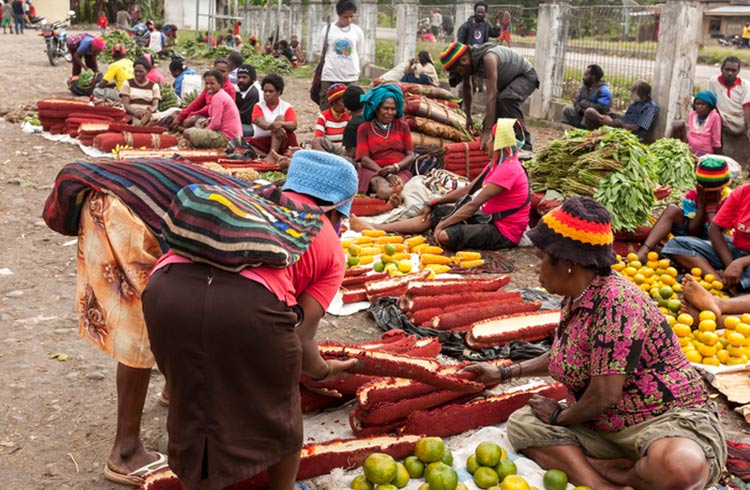
Most people visit Wamena to arrange a trek through the Baliem Valley. Unless you’ve got an excellent grasp of Papuan, hire a guide. Expensive guides can be found at the airport, or you can organise a mid-range priced guide through your hotel staff. The cheapest guides were bearded, shoeless dudes who wandered the streets, speaking garbled English. I chose a guide from the latter group and never regretted it.
When interviewing potential guides, it’s important to have a map, notepad and pen to agree on a fixed route and stop prices fluctuating.
Tip: Check with your hotel staff to be sure your guide is legit. Some they’ll vouch for, others can’t be trusted and have a bad reputation around town.
Be safe and take the time to get to know who you'll be venturing into Papua’s Wild West with. I went with a happy-go-lucky chap called Yesaya, and paid 800,000 IDR (US $58) per day.
Bear in mind, you will need a Surat Keterangan Jalan (Indonesian travel permit) to travel to the Baliem Valley and other remote areas of Papua. The permit is not available in Wamena but can be applied for in Jayapura.
Adventures into the heart of West Papua
There are a variety of routes that can be taken through the Baliem Valley. Inform your guide of your fitness and the kind of experience you're looking for – such as whether you mostly want to see bare countryside or pass through lots of villages.
This way, you can pick the route and pace, to suit the experience you're craving. In total, I trekked for five days, staying at the scenic villages of Wamarek, Userem, Syokosimo and Yogoshine.
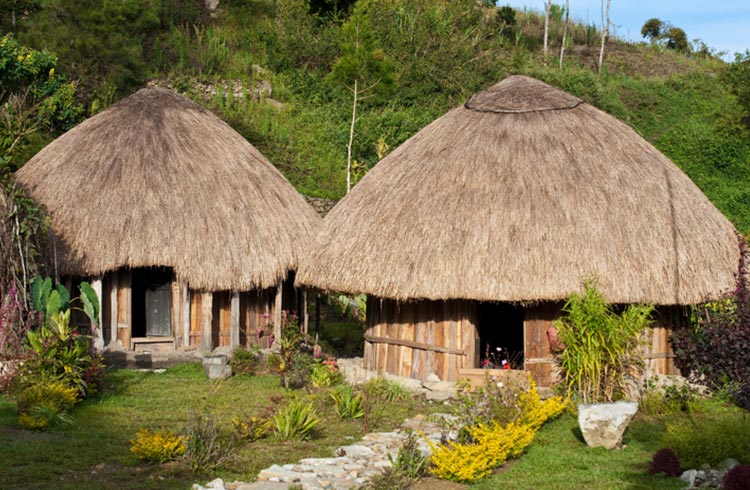
If you have several weeks, you can make the challenging journey into the highlands of Yali country, which is even more isolated. Just realise you'll have to make the entire journey back again, unless you can charter one of the infrequent missionary planes from Yali country to Wamena. You could go to the missionary office by the airport to try and arrange this.
Finally, bear in mind that tribal conflict can occur. Make sure your guide is comfortable taking your selected route and there is no risk to either of you. Also check for travel warnings before you set off.
Cultural encounters in West Papua
Don’t be surprised when the tribes you visit are mostly naked. The further into the jungle you venture, the fewer clothes there are. It’s just one of the many cultural encounters you may have never experienced before.
“Wah” means welcome, as does being given a whole sweet potato when you arrive somewhere you’re staying. Eat it – skin and all! Bring cigarettes (vital) and sweets (big bonus) as presents, but unwrap sweets and put the wrappers in a bag or children will litter the ground with them.
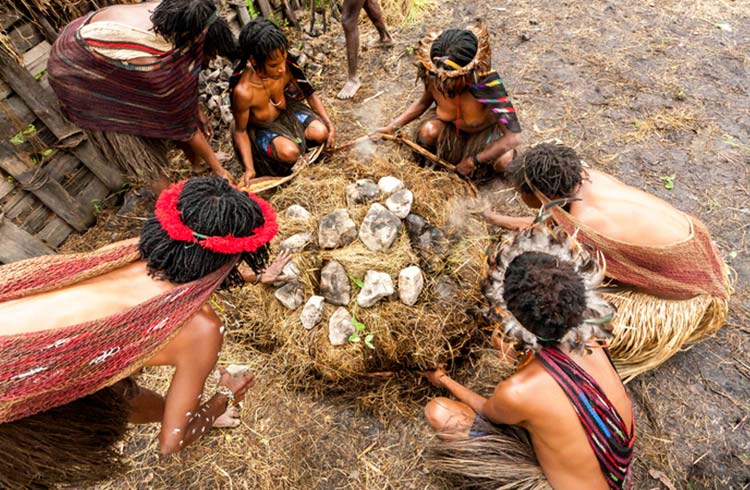
Virtually none of the villagers speak any English whatsoever. By evening, I interacted with them almost entirely by showing them pictures on my phone – they loved catching a glimpse of the outside world.
While tramping through the jungle, be prepared to see all manner of wild flora and fauna, including: stunning orchids, huge spiders, strange birds, and large lizards.
The Baliem Valley is littered with pristine fossils. Keep your eyes peeled for them on the ground, but don’t touch or steal them.
Raja Ampat Islands
To get to the Raja Ampat Islands, first fly to Sorong. Go to the Raja Ampat Tourism office across the road from the airport and buy your Raja Ampat Visitor Entry Ticket for 300,000 IDR (US $19). (Update: this office may no longer be in operation. Our understanding is that the Entry Ticket can be purchased at the Raja Ampat Regency Tourism Office desk at Waisai harbor.)
Get a taxi to Sorong Ferry Harbor and buy your ticket at the office. From here, you need to get a ferry to Waisai, capital of the Raja Ampat Regency. Ferries leave at 9:00am or 2:00pm every day, but can be both exceptionally late and early – you’ve been warned! Express boats take two hours, while slow boats take four. Tickets start at 125,000 IDR (US $8.25).
In Waisai, you'll also need to pay an Environmental Service Fee in order to receive a Marine Park Entry Card. This can be purchased from the Raja Ampat Marine Park Authority office in Waisai.
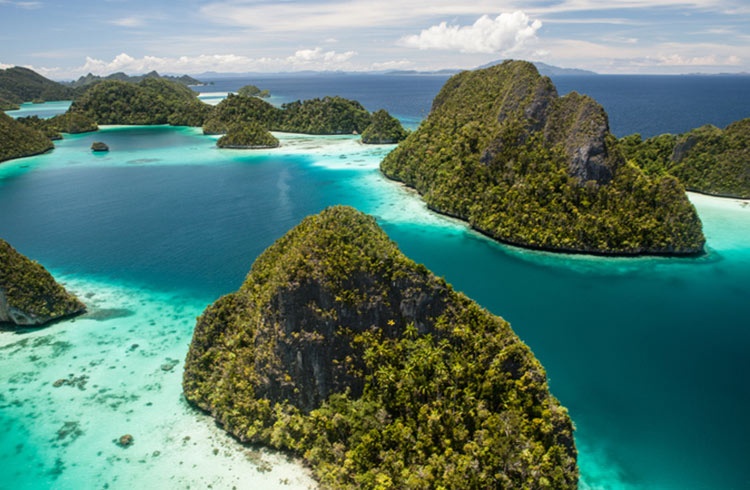
The easiest way of getting from Waisai to your island of choice is by arranging to be picked up at the harbor through whichever accommodation you’re staying with.
Tip: Bring the strongest mosquito repellent you can find, and wear long sleeves at night to keep the pests at bay.
Divine scuba diving
Island life is wonderfully slow. There are two things you can do – sit in a hammock with a book all day, or go diving.
You’ll need to be confident fitting your harness and getting set up without guidance within minimal time before rolling backwards out of the tiny boat and into the water.
As for the scene beneath the waves: rainbow colored forests of coral cavort across the sea bed, as huge tuna and sleek sharks dive after shimmering schools of fish. It will take your breath away. Fortunately, you’ll have an air tank.
Hiking on Kri island
There is a truly stunning viewpoint on Kri, on the far western side of Papua. At first the jungle path alternates between being visible and non-existent, so pay close attention to your surroundings, as it’s less clear coming down.
After climbing 490ft (150m), take a left and make the half kilometer climb to sunset viewpoint. There are a few twists and turns, but for the most part there’s an actual path to follow – just look up every once in a while to check for spider webs.
After the steep climb, you’ll emerge from the jungle to a small clearing overlooking the entire island. Watch the sky go red as the sun sets, and flick your head torch on to head back down.
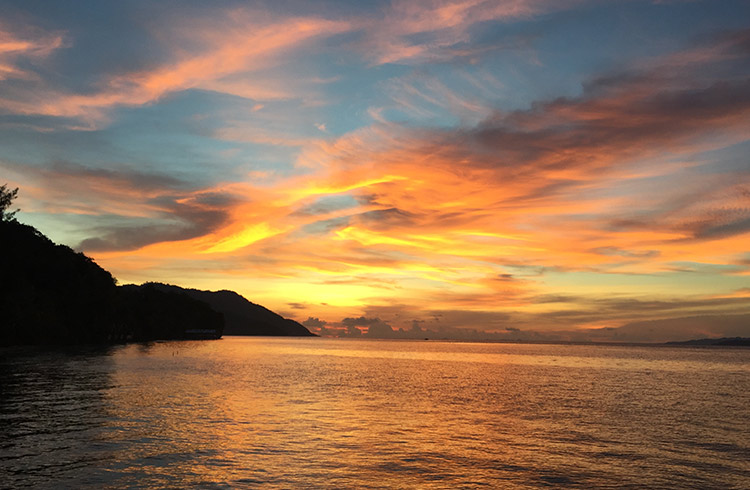
The way back down is notorious for being easy to get lost on. Make sure you leave with a decent amount of light, it's far darker beneath the dense canopy. Stick to the path you followed on the way up!
The Raja Ampat Islands are a truly stunning archipelago, almost dreamlike in their pristine nature and stunning coral reefs. It’s impossible to explain quite why they’re unlike anywhere you’ve visited before – you will simply have to go.
NOTE: For your own safety, please consider your government’s travel advice before deciding to travel to West Papua.
Related articles
Simple and flexible travel insurance
You can buy at home or while traveling, and claim online from anywhere in the world. With 150+ adventure activities covered and 24/7 emergency assistance.
Get a quote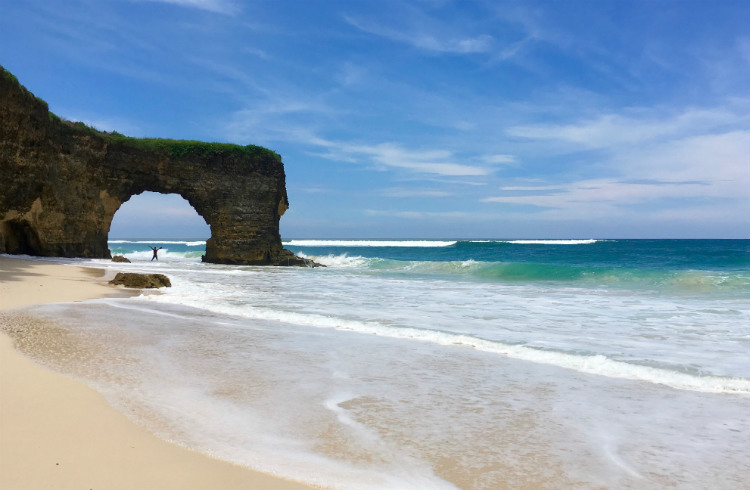
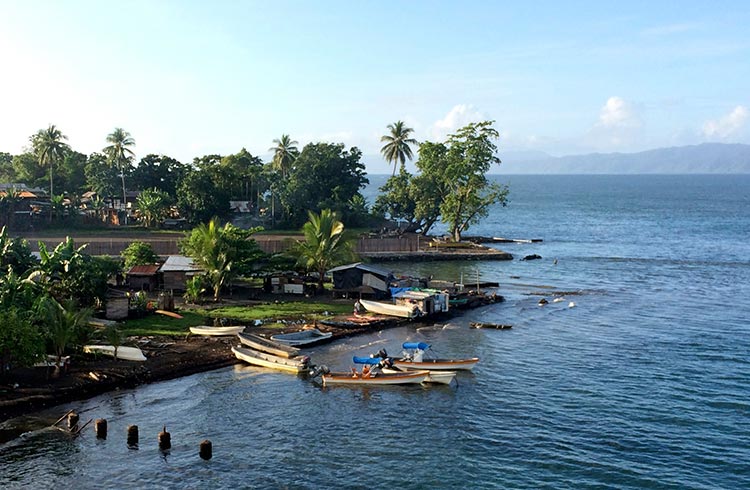
No Comments